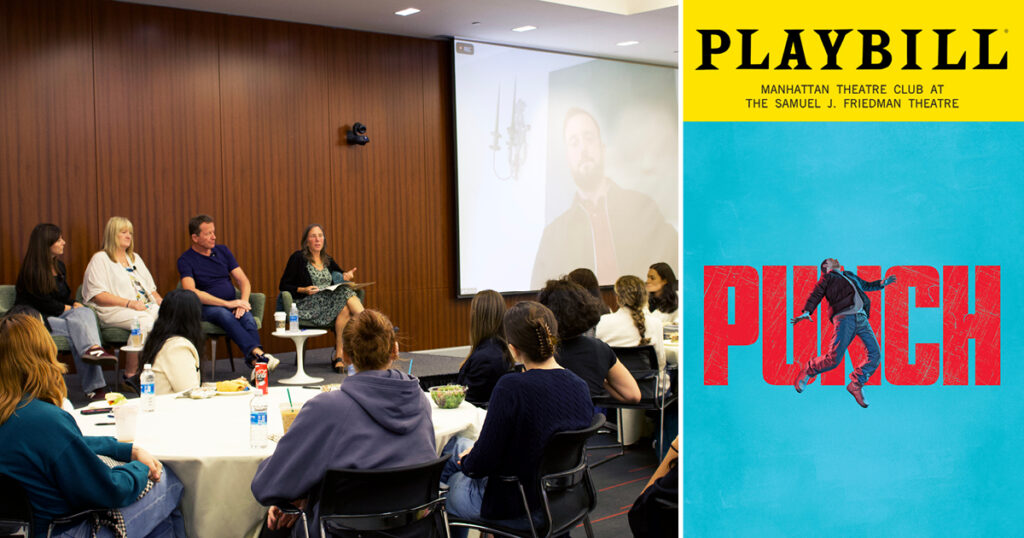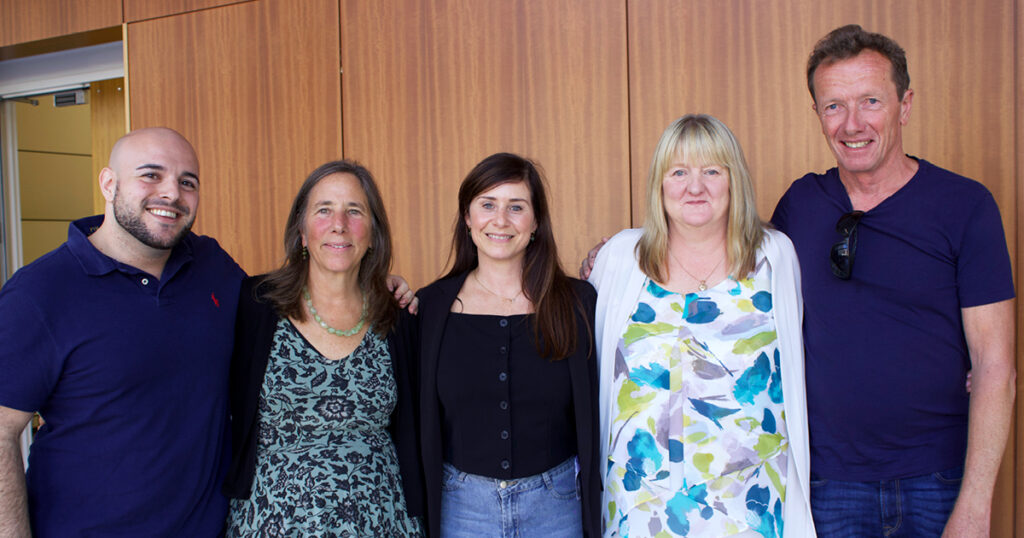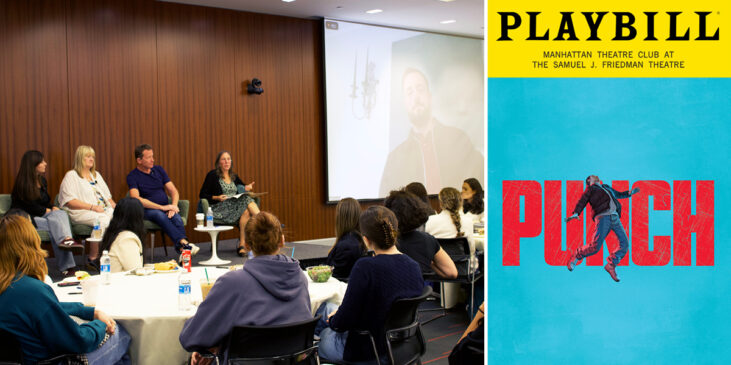
New York Law School (NYLS) Professor Susan J. Abraham is the Restorative Justice Consultant for Punch, a Broadway show currently playing at the Samuel J. Friedman Theater of the Manhattan Theater Club. The show, which is also playing in London, is based on the true story from England of a transformative restorative meeting between two parents who lost their son, James Hodgkinson, in 2011, and Jacob Dunne, the nineteen-year-old who threw the punch that led to James’s death. Learn more about Punch.
As a consultant, Professor Abraham has been working with the cast, director, and playwright to help cultivate a deeper understanding of restorative justice and how it’s practiced in the United States. She, joined by Felix B. Rosado (Co-Founder, Let’s Circle Up), will be leading a “Beyond the Stage” audience talkback after the evening show on October 15, 2025, to introduce the core principles of restorative justice, discuss a variety of ways they can be practiced, and share insight into how this transformative process can aid in healing and accountability.
Earlier this month, Professor Abraham invited James’s parents, Joan Scourfield and David Hodgkinson, and their restorative justice facilitator, Nicola Fowler, to the NYLS campus to speak about their journey. Joined by Jacob virtually, they engaged in a conversation and shared how the parents’ search for answers led to transformative change for everyone involved.
Following their son’s death, Joan and David were left with countless questions about what exactly happened and why. The criminal process surrounding Jacob’s guilty plea did not offer an opportunity for them to learn the facts, and data protection laws at the time further harbored them from the answers they sought to begin healing. That was when they learned about restorative justice and began communicating with Jacob through Nicola. In addition to providing the answers they needed, the experience enabled Joan and David to see that Jacob was a troubled young man who did not intend to cause serious harm and felt deep remorse. For Jacob, it offered an opportunity to reflect on and take accountability for his actions. A few years after their initial conversation, the three met in person, marking the beginning of a bond tethered by shared understanding and advocacy for restorative justice. “It became very important to us to make something positive out of this,” said David.
On what drew him to connect with the parents of the man he’d killed, Jacob noted, “People in prison can be ignorant of the harm they’ve caused to victims and their communities. They’re hidden away from it in places with high walls and bars on the windows. Agreeing to allow Nicola to come and tell me about restorative justice and about David and Joan was me no longer wanting to be ignorant.”
Both moving and illuminating, the conversation highlighted Nicola’s experience as a facilitator; the differences between restorative justice practices in England and the United States; and restorative justice advocacy organizations such as Common Justice, One Punch UK, and the Common Ground Justice Project. Read more about the advocacy behind Punch.
“Of the victims that [Common Justice] asks, over 90 percent say yes to the possibility of taking violent felony cases out of the court system and into a restorative justice process,” shared Professor Abraham. “A lot of these victims are from neighborhoods where people come out of prison and commit more crimes, and [many residents of those communities] would be happier having some kind of learning happen, so perpetrators are less likely to do it again. Prosecutors have traditionally said that victims push for jail after they’ve been harmed, but victims might not know about other alternatives, such as restorative justice, that include deeper learning, change, and responsibility.”
Professor Abraham directs NYLS’s Restorative Justice Project, which combines the theoretical study of restorative justice with teaching basic restorative practices that students can directly engage with through externships and throughout their careers. This event was co-sponsored by the Wilf Impact Center for Public Interest Law, along with two student organizations: the Restorative Justice Law Student Association and the Criminal Law Society.


